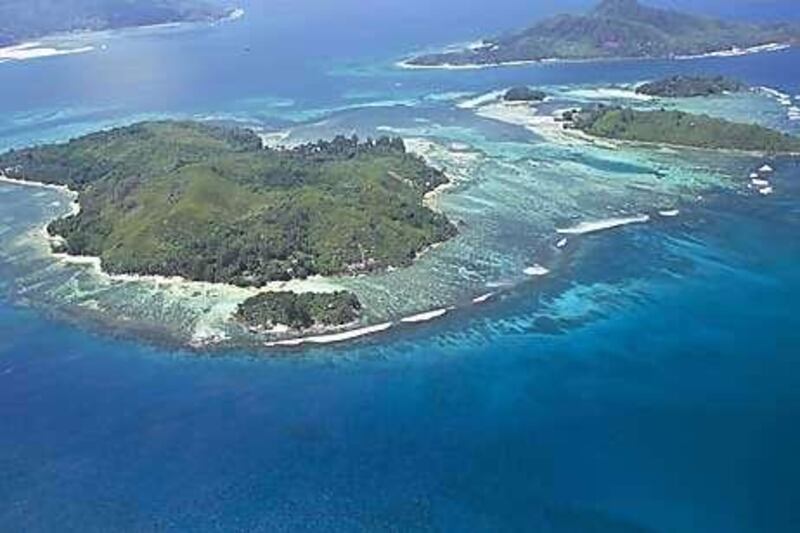Millions in funding from the UAE for an anti-piracy base in the Seychelles will help "tremendously" in the island nation's fight against the scourge, but will still be insufficient to secure its waters fully, said the country's home affairs minister. The Seychelles, an archipelago of 115 islands in the Indian Ocean, has three patrol boats to monitor the 1.3 million square kilometres of sea that it has exclusive rights to fish and mine.
"It has been likened to having one patrol car to patrol the entire state of Texas," said Joel Morgan, who is head of the Seychelles high level committee on piracy and holds ministerial portfolios in transport and the environment. In the new project, announced in July, the UAE pledged US$15 million (Dh55m) for five boats, more than doubling the size of the country's coastguard fleet. The funds also provide for surveillance and communication equipment, including a radar system, construction of the new coastguard base and a quay at the port on the main island of Mahe.
"This new base will help to position the coastguard better to deal with new threats," Mr Morgan said. "It will help tremendously by giving us the ability to spread out our boats. At any one time in the peak season we have several threats, so this will allow us to monitor hot spots and mobilise resources simultaneously." However, he said there were still not sufficient resources to address the piracy problem — "by far".
"It's a huge, huge area, and our fisherman fish over huge distances," he said. With the Seychelles waters bordering those of Somalia, piracy attacks or sightings are reported almost daily when the seas are calm enough for pirate skiffs. The pirates have severely damaged the country's maritime tourism and fishing industries, with the government estimating the impact to be about four per cent of its gross domestic product in 2009.
"We are in the eye of the storm when it comes to piracy," said Mr Morgan. "We are right in the middle of the problem." With more than 100 unoccupied islands spread thousands of kilometres apart, the government has even had to deploy ground troops to its far-flung extremities to stop them being used as staging posts by pirates. The Seychelles has been seeking assistance for its maritime security operations for a number of years. The US has donated several unmanned drones to the country to monitor piracy. The UAE also donated a surveillance plane several years ago, but the nation is still in need of more help, Mr Morgan said.
"We are in discussions with all our partners, including the UAE, to improve our air surveillance so we can spot problems and send out patrol vessels," he said. The newly inked deal followed a June meeting between Sheikh Khalifa bin Zayed, President of the UAE, and his Seychellois counterpart, James Michel. "There's a very close relationship between our two leaders," said Mr Morgan. Sheikh Khalifa is constructing a palace on Mahe and has launched other Emirates-funded projects in the Seychelles, include a medical diagnostic centre and 14 new buses.
Ground work on the new coast guard base has already begun and the project is expected to be completed in the second half of 2011. The Seychelles is one of the few countries in the world that has agreed to try Somali pirates on its soil. There are about 40 pirates already in detention, with 11 convicted and the others awaiting trial. Globally, pirate attacks declined by a fifth in the first half of this year, compared to the same period in 2009, according to the International Maritime Bureau's piracy reporting centre, an improvement it attributed to increased naval patrols. However, for Mr Morgan, the problem is still "severe".
The minister said he'd like to see more countries in the region helping in anti-piracy efforts. "We are trying to sensitise the region to the problem," he said. "It isn't just a problem for the Seychelles alone, it is a regional issue and also an international one." lmorris@thenational.ae






